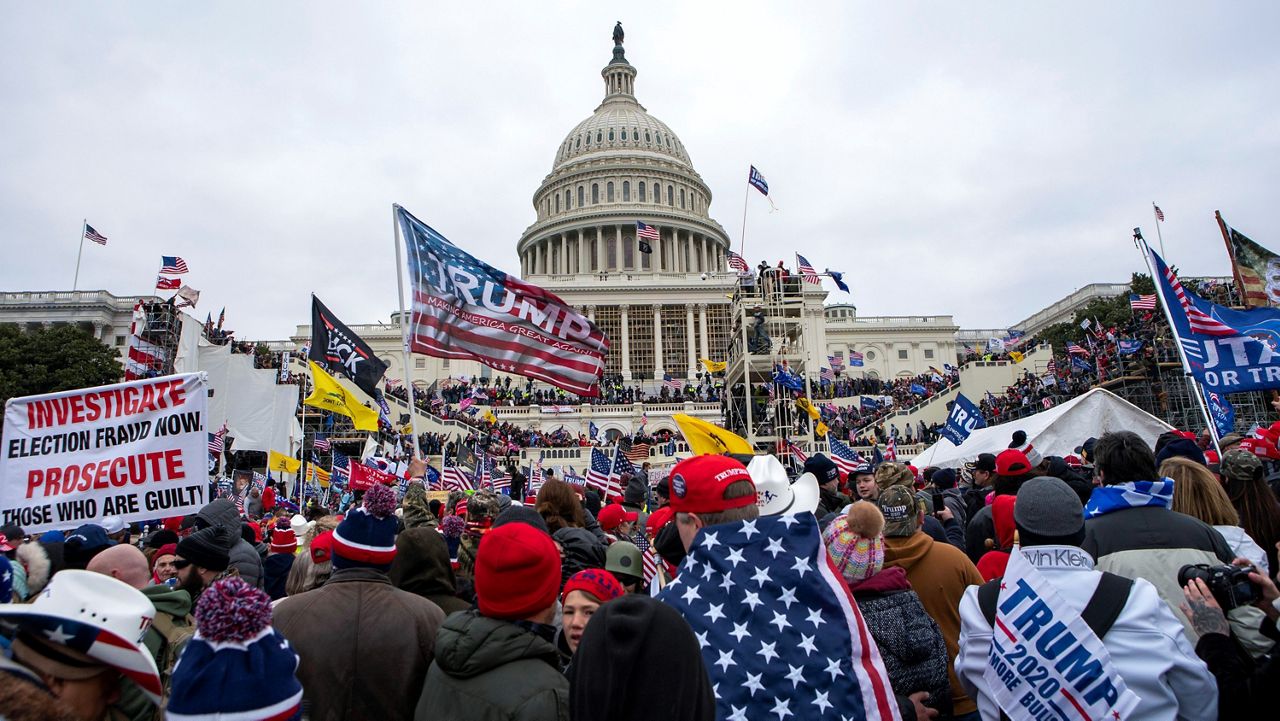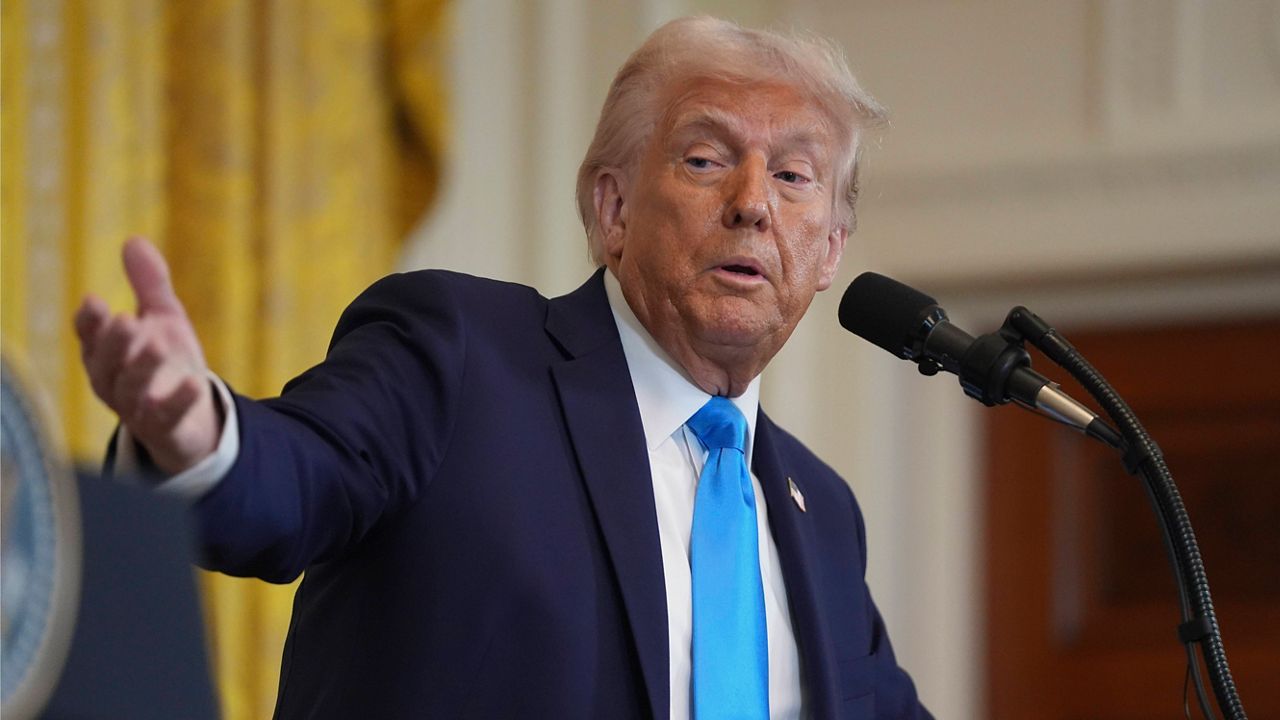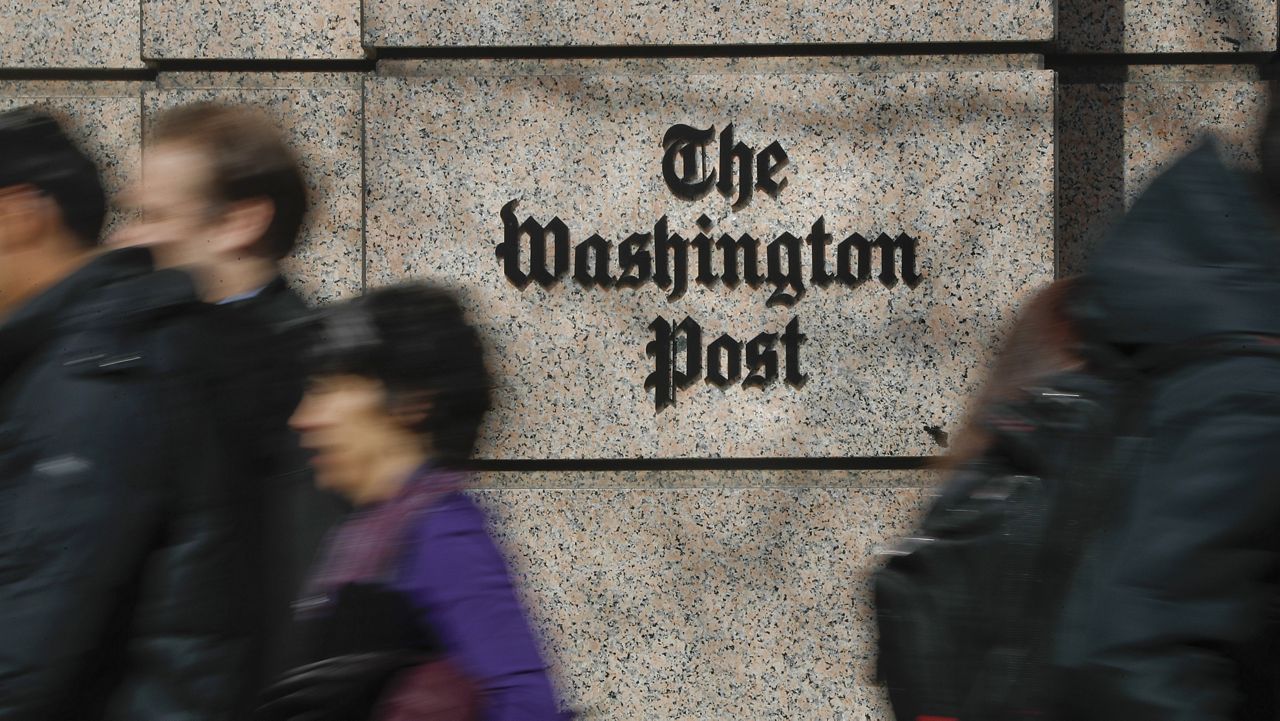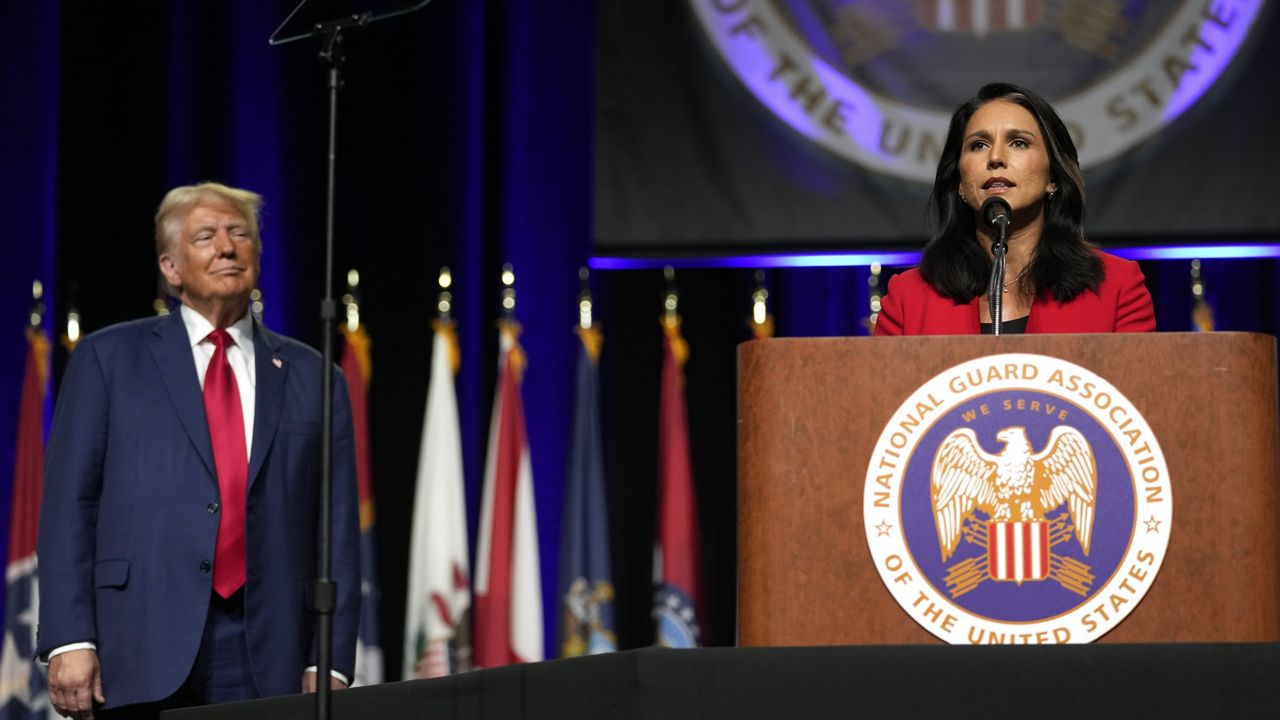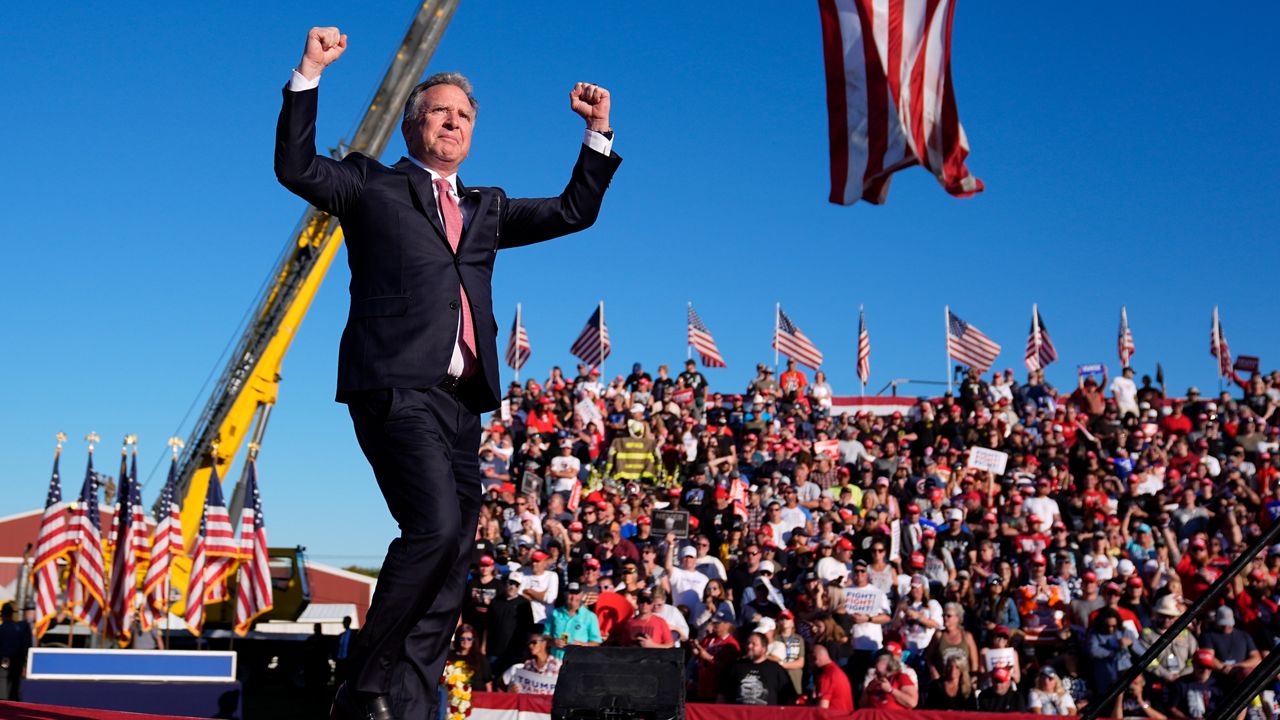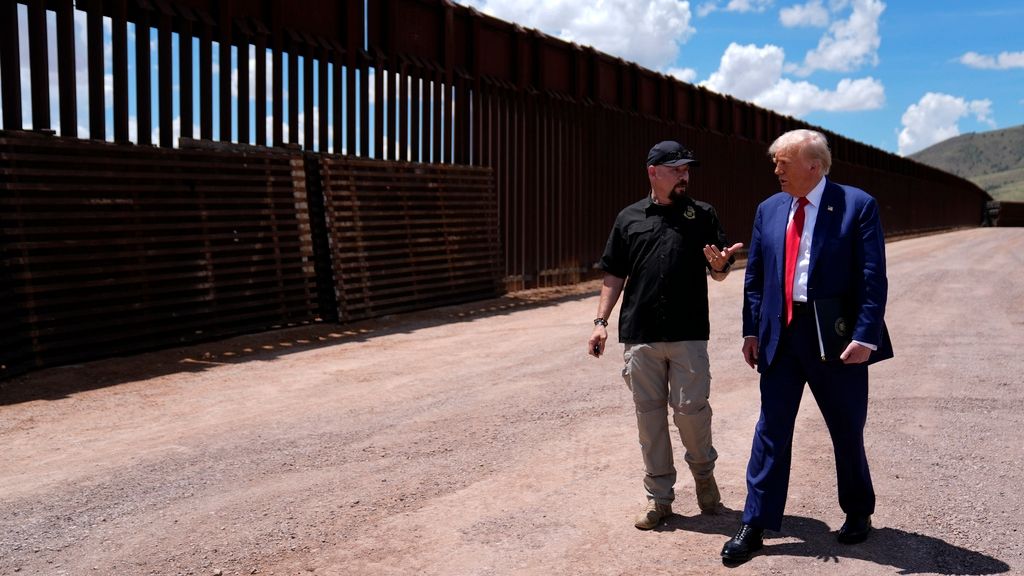As Native Americans across the U.S. come together on Monday for Indigenous Peoples Day to celebrate their history and culture and acknowledge the ongoing challenges they face, many will do so with a focus on the election.
From a voting rally in Minneapolis featuring food, games and raffles to a public talk about the Native vote at Virginia Tech, the holiday, which comes about three weeks before Election Day, will feature a wide array of events geared toward Native voter mobilization and outreach amid a strong recognition of the power of their votes.
The Democratic National Committee on Monday announced a six-figure ad buy aimed at driving Native American voter turnout in four states: Arizona, North Carolina, Montana and Alaska.
At nearly 20%, Alaska has a higher proportion of its population that identifies as American Indian and Alaska Native than any other state, per the U.S. Administration for Native Americans. Montana rounds out the top five with more than 8%. Both states have key congressional races in November, with a pair of Democrats, Alaska Rep. Mary Peltola and Montana Sen. Jon Tester, defending seats in states Donald Trump won in 2016 and 2020.
Arizona and North Carolina are both pivotal swing states in November's election, and both have sizable Native American populations.
The campaign aims to drive voter turnout by reaching Native communities in those four states via digital, print and radio ads, a majority of which are being placed in local and national Native-owned publications, per the DNC.
"Democrats are meeting Native voters where they are, investing in our third ad campaign this cycle dedicated to reaching Native communities, with vital information about voting in this election,” DNC Chair Jaime Harrison said in a release. “We know that this upcoming election is critical for our Tribal nations, with our freedoms, access to health care and education, and the fundamental right to self-determination and Tribal sovereignty on the ballot."
Minnesota Lt. Gov. Peggy Flanagan, who would become the country's first Native American governor if Vice President Kamala Harris and Minnesota Gov. Tim Walz are elected in November, said that indigenous people "will absolutely help decide the results of this election."
"With Harris and Walz at the top of the ticket, Native voters in swing states and in communities across the country have the power to put Democrats in office who will strengthen our tribal sovereignty and work to ensure that every Native child has the opportunity to achieve their biggest, boldest dreams," she said. "Now it’s up to us to raise our voices with our votes."
In 2020, Native voters proved decisive in the presidential election. Voter turnout on tribal land in Arizona increased dramatically compared with the previous presidential election, helping Joe Biden win a state that hadn't supported a Democratic candidate in a White House contest since 1996.
This election, Vice President Kamala Harris' campaign is reaching out to Native voters again. Last week, Walz, her running mate, was in Arizona state meeting with tribal leaders.
"We understand and I think you've seen Vice President be part of the Biden Harris administration that doesn't just understand sovereignty," Walz said. "They honor sovereignty, they understand what it means for our sovereign nations."
Janeen Comenote, executive director of the National Urban Indian Family Coalition, which is involved with at least a dozen of these types of voting events across the country, said this year it's especially important to mobilize Native voters because the country is selecting the president. But she cautioned that Native people are in no way a monolith in terms of how they vote.
"We're really all about just getting Native voters out to vote, not telling them how to vote. But sort of understanding that you have a voice and you're a democracy, a democracy that we helped create," said Comenote, a citizen of the Quinault Indian Nation.
In Arizona, her coalition is partnering with the Phoenix Indian Center to hold a town hall Monday called "Democracy Is Indigenous: Power Of The Native Vote," which will feature speakers and performances, along with Indigenous artwork centered on democracy.
In Apex, North Carolina, about 14 miles southwest of Raleigh, the coalition is working with the Triangle Native American Society for an event expected to include a celebration of the 100th anniversary of the Indian Citizenship Act of 1924 and a booth with nonpartisan voter information and giveaways.
In Minnesota, the American Indian Opportunities Industrialization Center is hosting a voting rally in Minneapolis.
While not a federal holiday, Indigenous Peoples Day is observed by 17 states, including Washington, South Dakota and Maine, as well as Washington, D.C., according to the Pew Research Center. It typically takes place on the second Monday in October, which is the same day as the Columbus Day federal holiday.
Trump's campaign, meanwhile, hammered Harris over comments during her 2019 presidential campaign in support of renaming Columbus Day for Indigenous Peoples Day, as well as her comments as vice president in 2021 to the National Congress of American Indians Conference. A spokesperson for the Trump campaign called Harris a "stereotypical leftist" and accused her of wanting to "cancel" the holiday named for the
Trump's campaign has focused some of their recent efforts on mobilizing members of the Lumbee Tribe in North Carolina






